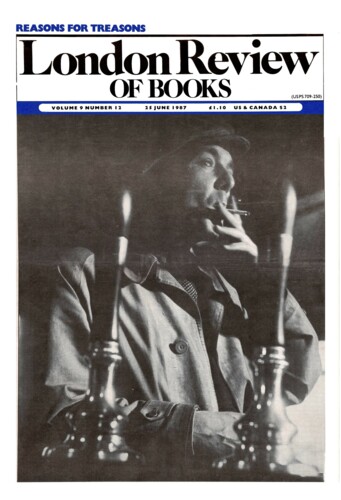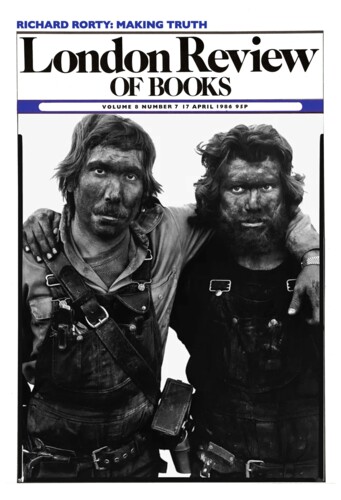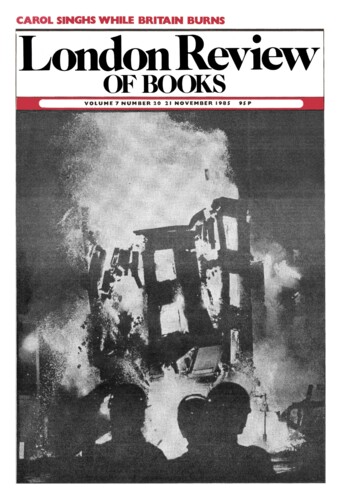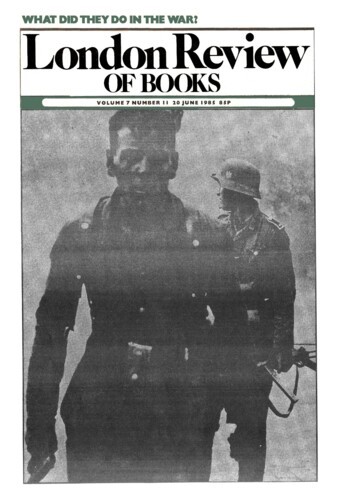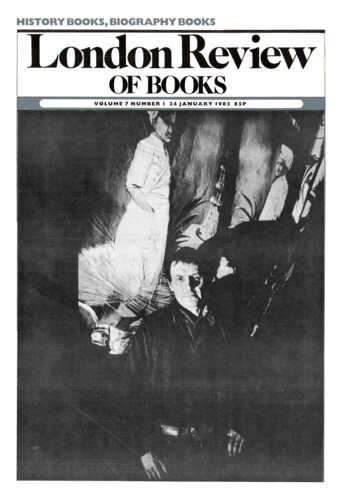Past Masters
Raymond Williams, 25 June 1987
What can we possibly say of the claim that ‘the first great revolutionary movements in Europe’ were all ‘more or less imbued with the ideas of Joachim of Fiore’? Or, if ‘more or less’ offers an escape clause, what can we say of another claim: that ‘Joachim created the aggregate of symbols which govern the self-interpretation of modern political society to this day’? Or that ‘it is hardly too much to claim that the vague and powerful assumptions we all make about historical transition have their roots in Joachism’?
